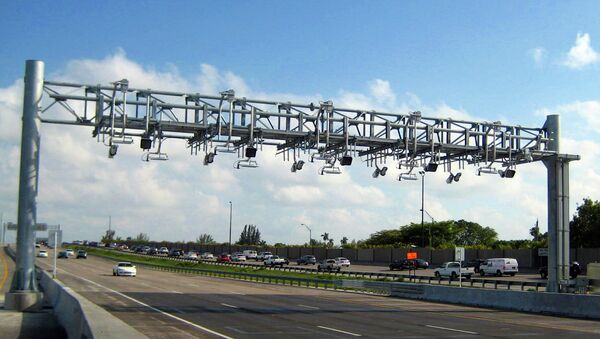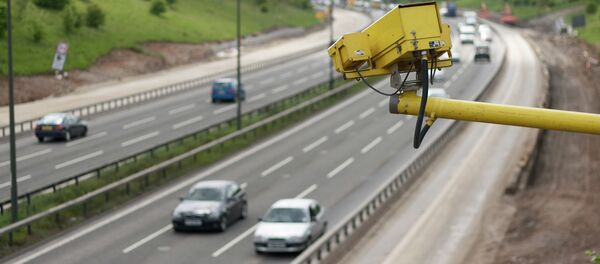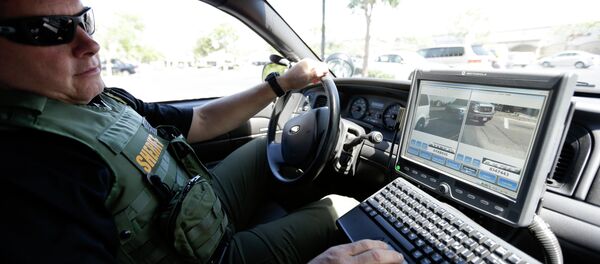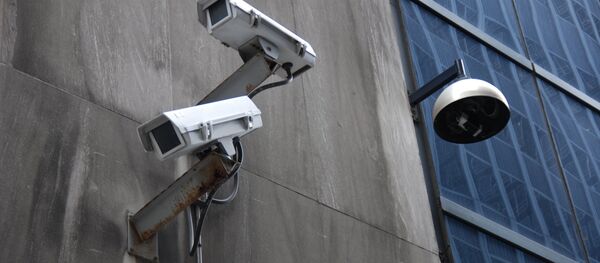Despite a wave of criticism against DHS over its planned license plate scanning operation that came to light last year, the agency intends to go ahead with the program. However, in the interest of appeasing privacy advocates concerned about another massive government surveillance program, the agency has promised to operate in only half the country.
"The LPR [License Plate Reader] data service shall compile LPR from at least 25 states and 24 of the top 30 most populous metropolitan statistical areas to the extent authorized by law in those locations," reads a revised contract from DHS Immigration and Customs officials.
The modified contract also decreases the number of records that the program would supply each month. Instead of 30 million, DHS license scanners will supply six million records per month.
Privacy advocates have repeatedly expressed concerns that license plate-scanning operations have the potential to develop into a national location-tracking database.
"It’s appropriate to use license plate scanners to check for wanted vehicles, but the technology should never be used to store up databases of the movements of vehicles that are not on any hot lists," American Civil Liberties Union senior policy analyst Jay Stanley and ACLU legal assistant Bennett Stein wrote in a blog entry.
"It violates the longstanding tenet that the government not monitor citizens unless it has individualized suspicion of involvement in wrongdoing," they added.
DHS maintains that the program is necessary to track "known license plate numbers associated with the aliens who are immigration enforcement priorities" and monitor "where and when the vehicle has traveled within a specified period of time," according to government officials speaking to NextGov.
The agency also insists the scanners will not be used to create a database of US drivers, and that it will function as an essential crime-fighting tool.
"These restrictions will provide essential privacy and civil liberty protections, while enhancing our agents’ and officers’ ability to locate and apprehend suspects who could pose a threat to national security and public safety," DHS spokeswoman Marsha Catron wrote in a public statement last month.
Yet the modified contract’s stated objective appears to contradict that goal.
"To provide constant (24 hour, seven days per week) access to a commercially available, query-based LPR database for ICE law enforcement personnel at ICE offices across the United States in the execution of their law enforcement duties," the contract reads.
It’s also important to note that the surveillance reductions are largely in place to appeal to a broader selection of contractors, and could be raised, depending on how technically savvy the winning contractor turns out to be.
"ICE modified the solicitation based on feedback from vendors requesting that the minimum threshold for records be lowered in order to facilitate greater competition," DHS spokeswoman Gillian M. Christensen told NextGov. "ICE has not scaled back the scope or protections. We have lowered some of the minimum requirements to allow additional commercial vendors to participate in this acquisition."
Regardless of the scope, privacy advocates point out that any degree of unwarranted citizen surveillance is a violation. US residents have been particularly concerned since the revelations of former NSA contractor Edward Snowden about the government’s domestic spying apparatus.
"Using massive systems of automated license plate recognition devices absolutely violates our fundamental right to privacy," Nicolas Sarwark, Chairman of the US Libertarian National Committee, told Sputnik in February. "These systems allow the government to know everything about a person’s movements, especially when combined with facial recognition."






